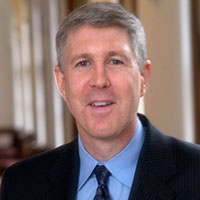Physical activity is one of the keys to cancer prevention
May 15, 2019
Cancer researchers advocate that physical activity and exercise should be chief components of cancer care and prevention as scientists from the American Institute of Cancer Research (AICR) this week confirm the direct influence of regular exercise upon reducing cancer risk.
Disseminating the message that increased physical activity, along with prudent lifestyle changes focused on good nutrition and weight control, is an evidence-based standard for cancer prevention and care is an urgent priority for scientists from around the globe at AICR’s annual conference, held at the University of North Carolina at Chapel Hill May 15-17, 2019.
In May 2018, the AICR and the World Cancer Research Fund launched the most comprehensive and authoritative report on lifestyle and cancer prevention to date: Diet, Nutrition, Physical Activity and Cancer: A Global Perspective, the Third Expert Report. The publication presented the latest research on how lifestyle factors such as diet, nutrition, body weight and physical activity can impact cancer risk.

Dr. Stephen Hursting
Stephen Hursting, PhD, professor of nutrition at the UNC Gillings School of Global Health, was part of the expert panel that drafted the report. He says this year’s conference represents an opportunity for many established and emerging leaders in the nutrition, physical activity and cancer prevention fields to come together and explore how to translate the knowledge gained from the report into interventions that can save lives.
“We have the blueprint and the research findings of the report, and we’re convening at a School where basic science, behavioral science and epidemiology are incredibly strong,” says Hursting. “Now, we have this great opportunity to discuss how to accelerate the pace of research and effectively translate that research so we can start reducing the risk of developing or dying from cancer.”
Obesity not only escalates cancer risk by increasing harmful inflammation that promotes cancer development, but it also causes metabolic derangements that can lead to enhanced growth and aggression of many cancers. A sedentary lifestyle with prolonged periods of sitting or excessive screen time also has been linked to increased cancer risk.
Focusing exclusively on exercise alone or diet alone, however, is unlikely to have the desired result, says Hursting. For most people, combining increased moderate to vigorous physical activity with healthy dietary changes is more likely to improve metabolic health and have the anti-inflammatory impact needed for the body to prevent many cancers.
Researchers now must address how to best tailor exercise regimens and dietary changes to maximize effectiveness, given individual differences in many factors such as age, genetics, mobility levels and medical history.
“We also are learning that increased exercise, when combined with healthier eating, improves the body’s response to chemotherapy and may impede the metastatic process,” Hursting says. “It also mitigates muscle wasting, a common circumstance for many patients with advanced cancer, by helping to develop muscle mass and delay decline. Physical activity and exercise can be important contributors to weight maintenance, but even if the benefits are not always visible on a scale, the metabolic benefits make physical activity and exercise key components of cancer prevention, patient care and survivorship.”
The AICR champions the latest and most authoritative scientific research from around the world on cancer prevention and survival through diet, weight and physical activity to help people make informed lifestyle choices to reduce their cancer risk. To date, the institute has contributed more than $108 million for innovative research conducted at universities, hospitals and research centers across the country.
Contact the Gillings School of Global Public Health communications team at sphcomm@listserv.unc.edu.
